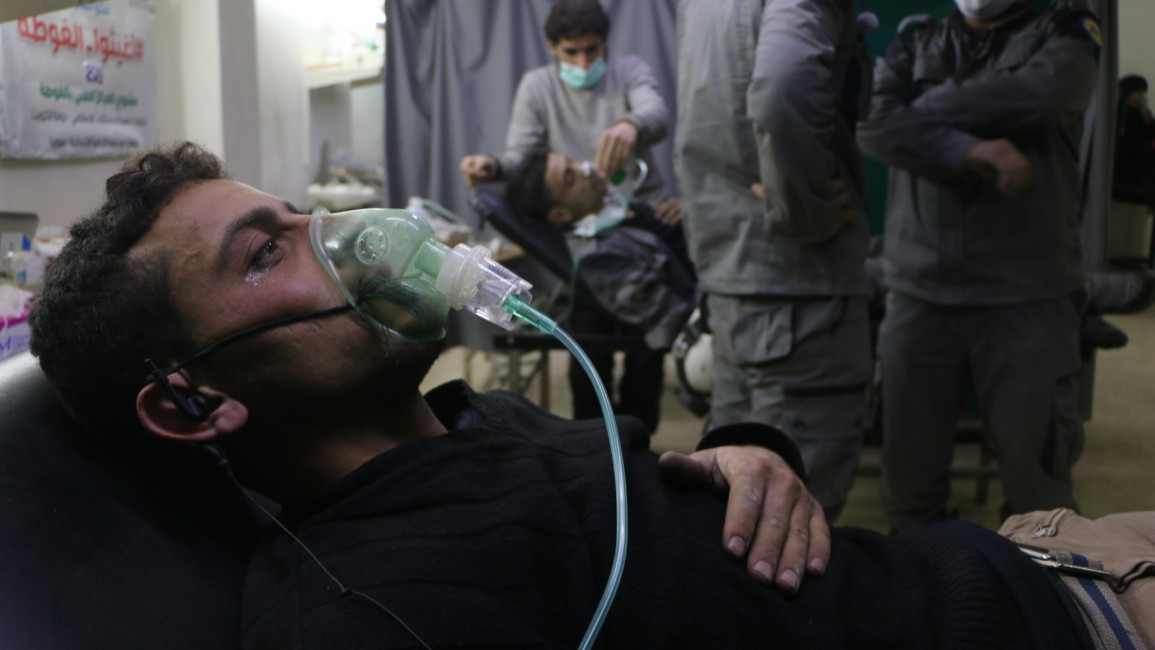UN chemical weapons watchdog expected to explicitly accuse Syrian regime of chemical massacres
A long-awaited report from the UN's chemical weapons watchdog is expected to explicitly blame the Syrian regime for sarin and chlorine attacks on civilians.
The report, which will be published by a new unit at the Organisation for the Prohibition of Chemical Weapons (OPCW) on Wednesday, comes as the anniversaries of a deadly chemical attack on the former rebel-held town of Douma in 2018, and a sarin attack on Khan Sheikhoun in 2017.
The two attacks killed at least 85 people and 89 people respectively, however, the report is expected to centre on chemical attacks on the village of Al-Lataminah in 2017.
The report is the result of powers granted to the OPCW by a 2018 UN resolution which called for the watchdog to "put in place arrangements to identify the perpetrators of the use of chemical weapons in the Syrian Arab Republic by identifying and reporting on all information potentially relevant to the origin of those chemical weapons".
Earlier investigations by the OPCW were not mandated to apportion blame for the chemical attacks.
The findings of the new investigation and identification team (IIT) report could lead to new sanctions on Syrian officials. However, it is likely that Syria and its allies Russia and Iran will dismiss the report as "biased".
|
||
"Even though the evidence of Assad’s crimes against humanity is incontrovertible, independent fact finding missions have been massively undermined by Russian-led disinformation campaigns," Hamish de Bretton-Gordon, a chemical weapons expert and director of Doctors Under Fire, was quoted by The Guardian as saying.
"For example, the supposed whistleblower controversy at the OPCW last year, which the organisation comprehensively rejected with an official inquiry. Even though the criticism was found to be baseless it does not stop the conspiracy theorists," he added, referring to two former inspectors who leaked confidential papers questioning the body's findings into a 2018 chlorine attack in the Syrian town of Douma.
The OPCW on Monday issued a statement on the controversy, saying that the two former officials were "not whistleblowers".
Read also: UN refuses to directly blame Russia for Syria hospital attacks
"Inspectors A and B are not whistleblowers. They are individuals who could not accept that their views are not backed by evidence," OPCW head Fernando Arias said.
The OPCW also said that the two officials "refused to cooperate with the investigation".
"Inspector A was not a member of the watchdog's Fact-Finding Mission... and played a minor supporting role in the investigation of the Douma incident."



